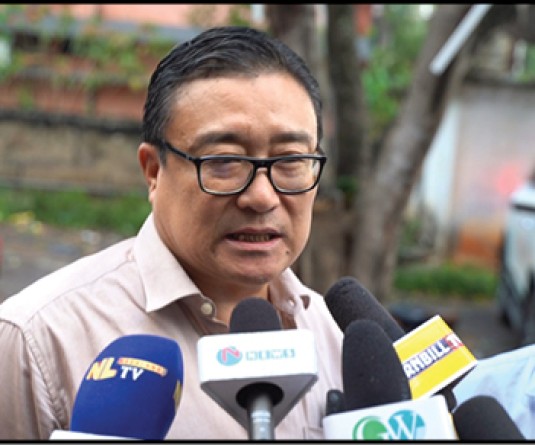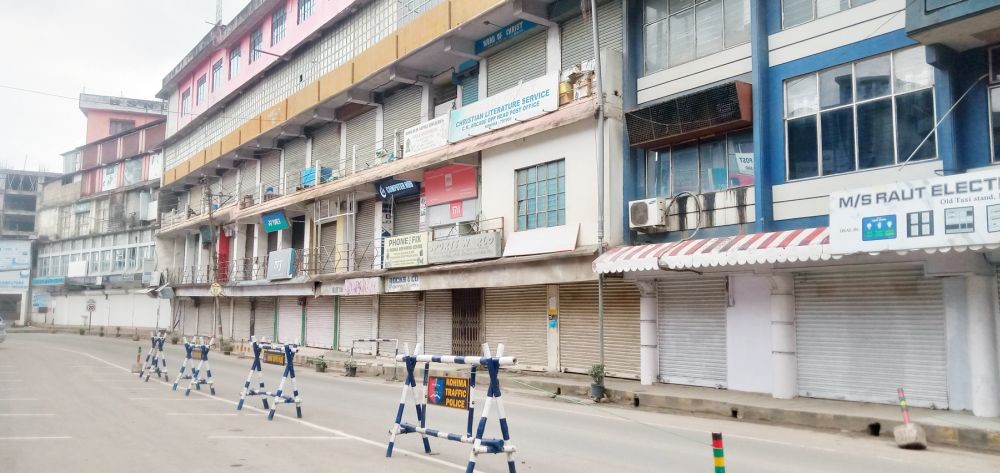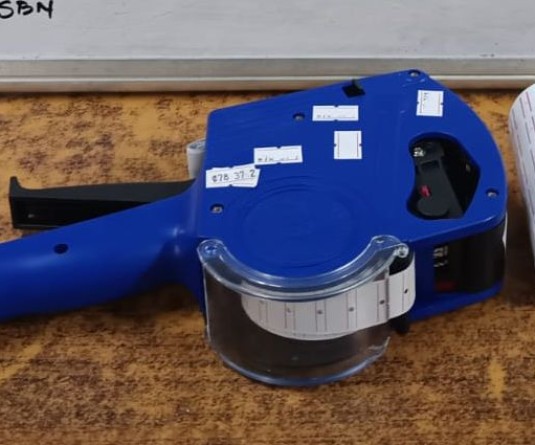
Dimapur, January 28 (MExN): Symbolic of returning to his native Nagaland after long years of travel and stay abroad and also setting a vision for the future generations, Naga historian and peace activist Dr. Visier Sanyü Meyasetsu on January 27 finally announced the launch of a Healing Garden.
Besides family, friends, well wishers from Nagaland, the inauguration of the Healing Garden, located in Medziphema, saw guests from Ireland, Japan, New Zealand lending their support and solidarity. Climate Scientist from New Zealand Alan Porteus gave the inaugural address.
Sharing his vision for the Healing Garden, Dr. Visier Sanyü said he had always wanted to come back home after the long journey away. While acknowledging the opportunities that opened for him, Dr Visier also spoke about his painful experiences. The deaths of his siblings, especially his older brother who was a storyteller, a chanter, a repository of knowledge, broke his heart. Six nephews died of drug and alcohol abuse.
With a desire to return home and give back something, he decided to make a healing garden to be enjoyed by generations to come. Also growing trees for future generations was the right thing to do, he said, while expressing hope that the healing garden will be a place for peace, tranquility, sharing and healing.
Alan Porteus termed climate change as the biggest environmental challenge of the day and stated “our way of living is damaging the world”. Pointing out that humankind cannot flourish without it, Porteus called for protecting the diversity of the natural world.
A climate scientist with the National Institute of Water and Atmospheric Research, New Zealand, Porteus hoped that the Healing Garden and the vision set forth by Dr. Visier would bring about the “possibility of a new Nagaland” and with that the possibility of a world that works for everyone.
Noted peace activist Niketu Iralu also shared his thoughts for the garden. “In Nagaland we are learning…exploring ideas for building a new world. The healing of our lives and rebuilding relationship is the most important responsibility,” he said and hoped that the Healing Garden will play its part.
Meanwhile, peace activist from Japan Megumi Kanematsu said that after meeting her Naga friends, she had learned and understood more clearly the historical role of Japan in Asia, especially the involvement in World War II. She went on to admit that Naga people had suffered because of Japan.
“The Japanese still don’t have the strength to put right where we went wrong,” she said, adding “They (Japan) can learn from the strength of the Naga people.” Just like the trees which grow and live, Megumi stated, we need to take care of the roots. She appreciated the work started by Dr. Visier Sanyü with the Healing Garden and mentioned how she was taught “to pass on strength to the next generation” through such initiative of the Naga people.
Alec McRitchie from Ireland shared his observation about healing. He cited the example of the visit of the present British Queen to Ireland in 2011, the first such visit by a British monarch in more than 100 years. According to McRitchie, the Queen expressed regret for the unhappy events of the past related to the Irish political problem.
Another example of healing was of Masao Hirakubo, who fought in Nagaland with the Japanese army. However after the war, he spent many years promoting reconciliation with British veterans and was decorated by Britain for his work.
On the Healing Garden, McRitchie said Dr. Visier was creating a “wonderful place to which people can come and reflect upon and find out what their life’s purpose can be.”
Alan McRitchie was the European Director of the Bombardier Aerospace, the largest aeronautical engineering company in Northern Ireland. He is currently the Vice Chair of Catalyst Inc, an Innovation Centre based in Belfast.
The inauguration event was attended by a host of friends, well-wishers, members of different church groups, organizations and villagers. It was chaired by Pari Sanyü Meyasetsu and Asa Chase.




